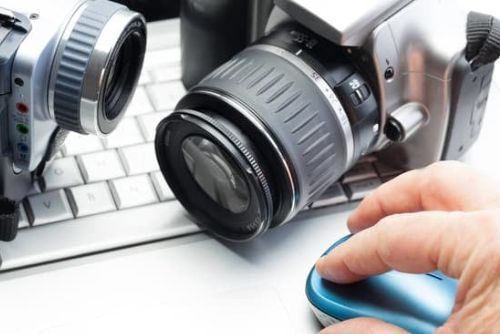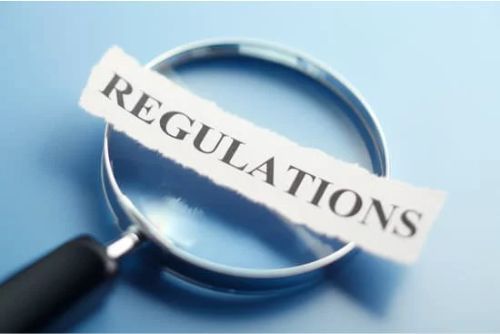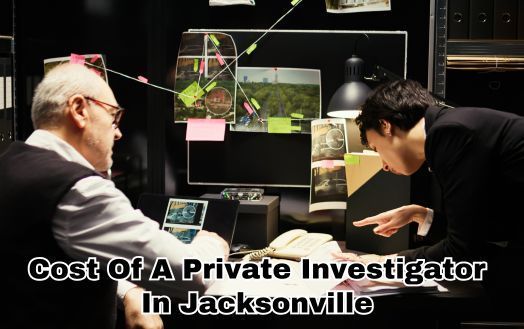How To Become A Private Investigator

Becoming a private investigator can be an exciting and rewarding career path for those who have a passion for solving mysteries, uncovering the truth, and helping people. As someone who has always been curious about the world around me and enjoys putting together clues to solve puzzles, I was drawn to this profession. If you are like me and want to know how to become a private investigator, keep reading.
In this article, I will provide you with a comprehensive guide on what it takes to become a private detective. From the necessary requirements and training to licensure and experience, state regulations, ethics and legal issues, continuing education, industry trends and outlooks as well as success tips and advice – we've got it all covered!
So if you're ready to embark on an exciting journey of discovery that combines your natural curiosity with investigative skills, let's get started! Make this article as your guide as you journey to become one of the best investigators in your area.
Requirements Needed On How To Become A Private Investigator

Before you can become a private investigator, you'll need to meet specific requirements. These requirements vary depending on the state or country, but generally include obtaining a license and completing relevant training programs. We will talk more about private investigator requirements in this section.
In addition, most states require that private investigators have previous experience in law enforcement or a related field. To obtain a license as a private detective, you will need to pass an exam and meet certain eligibility criteria. This may include having a clean criminal record, being of legal age, and having completed specific education or training programs.
Some states also require that private investigators carry liability insurance. Once you have obtained your license, it is important to continue your education and gain relevant experience in the field. This may involve taking additional courses or seminars on topics such as surveillance techniques, evidence collection, and legal procedures.
With proper training, dedication and hard work, you can build a successful career as a private investigator with varied opportunities for growth and innovation in this exciting field.
Special Training For Private Detectives
To develop the necessary skills for becoming a private detective, training is essential. There are various institutions that offer programs specifically designed to cater to aspiring PIs. These programs aim to provide comprehensive knowledge on investigative techniques and tools, as well as legal procedures and ethical considerations.
The training requirements for private investigators may vary depending on the state or country they intend to work in. However, most programs cover topics such as surveillance methods, interviewing techniques, report writing, evidence handling, and laws related to investigations.
Moreover, hands-on experience is often included in these training courses through internships or case simulations. It's important to note that completing a training program does not automatically grant a license for becoming a private investigator. However, it can significantly increase an individual's chances of passing licensing requirements since it demonstrates their commitment and dedication towards the profession.
After discussing the training, we'll delve deeper into the process of licensure and acquiring a license as a private investigator.
Private Investigator License And Licensure Requirements

Now that you've completed your training, it's time to focus on obtaining your license as a private investigator. Licensure is one of the critical requirements to become a private investigator, and involves fulfilling specific criteria set by the state.
Requirements vary depending on the location, but most states require applicants to be at least 18 years old, have no criminal record or convictions, meet certain educational qualifications, and pass an exam. The licensing process usually includes submitting an application along with supporting documents such as proof of education and experience.
Once you receive approval from the state licensing board, you'll need to pay a fee to obtain your license. Keep in mind that some states may also require PIs to renew their licenses periodically or complete continuing education courses. Obtaining licensure is an essential step in establishing yourself as a professional private investigator.
It shows potential clients that you have met the necessary requirements and are qualified to conduct investigations legally. However, having a license alone isn't enough; clients also look for experience and skills when selecting a PI to work with. In the next section, we'll explore how gaining experience can help boost your career as a private investigator.
Experience And Skills As A Private Investigator
As you gain experience and hone your skills, you'll find that clients are drawn to your expertise and trust in your abilities as a private investigator. The truth is, no matter how much knowledge or licensing you have under your belt, it's the practical application of those skills that will set you apart from other private detectives. So take every opportunity to work on investigations, even if they seem small or mundane at first.
Experience can come from many sources - working for an established private detective agency, interning with law enforcement agencies, or even volunteering with community organizations. Each experience adds value to your skillset and helps you develop new strategies for tackling cases.
As you work on cases and build a reputation for yourself in the industry, don't hesitate to seek out mentors who can offer guidance and support.
Of course, honing skills takes time and effort. It means staying up-to-date with new technologies like GPS tracking devices or cyber investigation techniques. It also means being attentive to details - noticing patterns where others might not see them and thinking creatively about solutions.
As you build experience and develop new skills as a private investigator, remember that this is a constantly evolving field with changing regulations and laws to keep up with - which we'll explore in the next section about state regulations.
State Regulations For Private Investigative Specializations

Staying compliant with changing state regulations is crucial for any private investigator's success in the constantly evolving field. As a private investigator, it's important to be aware of the specific licensing requirements and regulations set by your state.
Here are four key items to consider:
- Licensing: Each state has its own licensing requirements for private investigators. It's important to obtain the necessary license before conducting any private investigations.
- Investigative experience: Some states require a certain amount of investigative experience before issuing a license. This can include previous work as law enforcement or military personnel.
- Continuing education: Many states require private investigators to complete continuing education courses in order to maintain their license and stay up-to-date with changes in regulations.
- Agencies: In some states, a private detective must be associated with an agency or have their own agency in order to obtain a license.
By staying informed about state regulations, you can ensure that you're operating legally and ethically as an investigator working for private individuals or groups of people who need their services.
As a professional in this field, I understand the importance of adhering to state regulations when working as a private investigator. Complying with these regulations not only ensures legal operation but also helps build credibility with clients and other professionals in the industry.
With this understanding, let's move on to discussing another important aspect of being a private investigator - obtaining a firearms permit.
Firearms Permit For An Investigator
Obtaining a firearms permit is crucial for any private investigator who wants to ensure their safety and the safety of their clients while on the job. In order to carry a firearm legally, one must undergo proper firearms training and apply for a license through their state licensing authority.
Before applying for a firearms permit, it's important to research your state's regulations regarding private investigators carrying firearms. Some states have strict requirements, such as completing a certain number of hours of training or passing an exam. Additionally, some states may require proof of liability insurance before issuing a permit.
Once you've completed the necessary firearms training and submitted your license application, it's important to stay up-to-date with any changes in state regulations or requirements. This can help ensure that you maintain your ability to carry a firearm legally while working as successful investigators.
National Investigative Training Academy (NITA)

Now that I've got my firearms permit, I'm ready to move on to the next step in becoming a private investigator. This is where the National Investigative Training Academy (NITA) comes in.
NITA is an online training school that offers courses specifically designed for those who want to become investigators. At NITA, I'll learn about the laws and regulations surrounding investigations, as well as how to gather evidence and conduct interviews for private individuals or an organization. They also offer courses on surveillance techniques and report writing. Once I complete their program, I'll be equipped with all the skills necessary to obtain my private investigator license.
Becoming a private investigator requires more than just obtaining a license – it requires dedication and hard work. With the help of NITA, however, I'm confident that I can achieve my goal of becoming a successful private investigator. My ultimate goal is to specialize in a specific area of investigation such as cybercrime or insurance fraud.
Investigative Specializations Of Private Detectives
If you're looking to pursue a career as a private investigator, it's important to familiarize yourself with the various investigative specializations available. Some of the most common specializations include criminal investigations, corporate investigations, and civil investigations. Each specialization requires different skill sets and knowledge, so it's essential to choose one that aligns with your interests and strengths.
For example, if you have experience in law enforcement or criminal justice, a specialization in criminal investigations may be right for you. This field involves investigating crimes such as theft, fraud, and homicide on behalf of clients such as attorneys or insurance companies.
On the other hand, if you have a background in business or finance, corporate investigations may be more appealing. This specialization focuses on investigating matters such as embezzlement or intellectual property theft within a company.
It's worth noting that some states require licensed investigators to obtain specialized training before they can work in certain fields like child custody cases or arson investigations. Additionally, many employers prefer candidates with relevant work experience in their desired area of specialization. Therefore, doing research on the requirements for licensure and gaining practical experience through internships or entry-level positions can help set you apart from other candidates when pursuing your dream career as a private investigator.
As important as choosing your specialization is networking with others in this industry and joining professional associations specific to your chosen specialty. These connections can provide valuable resources for finding job opportunities and staying up-to-date on industry trends and best practices. With these tips in mind, let's explore how networking can help kick start your career as an investigator.
Networking And Professional Associations

Connecting with others in the private investigator industry through networking and joining professional associations is a valuable way to gain insights into the latest trends and best practices relevant to your chosen specialization.
By attending conferences and events, you can meet other professionals who may be able to offer guidance or even job opportunities. It's also important to stay up-to-date with changes in regulations and laws that may affect your career or services.
Networking can also help you build relationships with potential clients. Word-of-mouth referrals are powerful, so if you make a good impression on someone at a networking event, they may recommend your services to others. Joining professional associations can also give you access to job boards or directories where potential clients can find you.
Some popular professional associations for private investigators include the National Association of Investigative Specialists, the World Association of Detectives, and the National Council of Investigation & Security Services. These organizations often offer continuing education courses and certification programs that can enhance your skills as a private investigator. By being an active member of these associations, you show potential clients that you are committed to staying current in your field.
As important as networking is for private investigators, it's only one part of building a successful business. In addition to connecting with others in the industry, marketing and business strategies are crucial components of growing your client base and increasing revenue streams.
Marketing And Business Strategies
To effectively grow my business and attract clients as a licensed private investigator, I'll need to develop marketing strategies that showcase my unique skills and services. Here are some key business strategies that I plan on implementing on how to become a private investigator:
- Create a strong online presence: This includes having a professional website, active social media accounts, and positive reviews on platforms such as Google Business or Yelp.
- Network with other professionals: Building relationships with lawyers, insurance agents, and other relevant professionals can lead to referrals and increased clientele.
- Attend conferences and events: Attending industry-specific events can provide opportunities for learning, networking, and showcasing my agency's services.
- Offer free consultations: Providing potential clients with a no-obligation consultation can help build trust in my agency's abilities while also potentially leading to new cases.
- Utilize targeted advertising: By identifying specific demographics or industries that may require private investigation services, targeted advertising can bring in more qualified leads
By utilizing these marketing and business strategies, I hope to not only attract new clients but also establish myself as a reputable private investigator agency.
As the industry continues to evolve with new tools and technology emerging constantly, it's important for me to stay up-to-date with the latest advancements. In the next section about "tools and technology," I'll discuss how staying current with these advancements can benefit both myself and my clients.
Tools And Technology

Staying current with advancements in tools and technology is essential for any successful private investigator. In today's digital age, there are countless resources available to help us solve cases efficiently and effectively. From online databases to specialized software programs, technology has revolutionized the way we do our jobs. A specific training regarding the modern tools and technology are readily available in the market for aspiring private detectives.
For example, criminal history and background check services can now be accessed with just a few clicks of a mouse. As a private investigator, it's important to take advantage of these technological tools in order to stay competitive in the industry. Investing in reliable equipment such as surveillance cameras, GPS trackers, and forensic analysis software can make all the difference when it comes to gathering evidence for your clients. Utilizing social media platforms and other online resources can also provide valuable information that may have been difficult or impossible to access before.
However, while technology offers many benefits, it's important for private investigators to always prioritize ethical considerations when using these tools. It's crucial that we respect individuals' privacy rights and follow all relevant laws and regulations. Understanding the legal issues surrounding the use of certain technologies is an essential part of being a responsible and effective private investigator.
Ethics And Legal Issues
It's crucial for private detectives to always prioritize ethics and legal considerations when utilizing technological tools in their work. As a private investigative professional, it's important to understand the ethical implications of using certain technologies, as well as any legal restrictions or requirements surrounding their use.
For example, investigators should be aware of the laws governing surveillance or tracking devices, as well as any privacy concerns that may arise from their use. Additionally, they should ensure that any evidence obtained through these means is not only admissible in court but also obtained lawfully.
To become a successful private investigator, it's essential to have a strong understanding of ethics and legal issues surrounding your field. With this knowledge base, you'll be able to effectively navigate complex situations while always upholding ethical standards and complying with relevant laws and regulations.
In the next section about continuing education, we'll explore how further education can help you stay abreast of all relevant developments in this ever-changing field.
Continuing Education

Continuing education is essential for private investigators who want to stay up-to-date with the latest developments in their field. As a private investigator, I understand that laws and regulations change constantly, which can affect how I conduct my investigations. Because of this, it's important to pursue continuing education courses that will help me develop new skills and stay abreast of changes in the industry.
In most states, private investigators are required to maintain a license state as proof of their professional competence. This means they need to complete a certain number of continuing education credits each year as part of their license renewal process. Additionally, many employers require their private investigators to have specific certifications or degrees related to criminal justice or investigation.
In summary, continued learning is a crucial aspect for being an effective private investigator. By investing time and effort into improving our skills through various forms of education – whether online courses, seminars or workshops – we can enhance our ability to provide valuable services for clients while keeping up with changing trends within the industry.
As we explore upcoming trends and outlooks for the industry next, it's clear that only those who stay ahead will succeed in this ever-evolving field.
Industry Trends And Outlook
Looking ahead, industry trends and outlook predict a significant increase in demand for investigative services due to the rise of cybercrime and advanced technology. As more individuals become victims of online scams, credit cards fraud, identity theft, and hacking incidents, private investigators with specialized skills in digital forensics will be highly sought after.
Moreover, businesses are also looking to hire licensed private investigators to conduct pre-employment screening, background checks on potential business partners, and internal investigations.
To succeed as a private investigator in this rapidly evolving industry, it's important to keep up-to-date with the latest technological advancements. This means investing in training programs that offer courses on cybersecurity, data analytics, and social media intelligence gathering. Additionally, gaining experience in various areas such as insurance fraud investigations or financial crimes can make you stand out among other job applicants.
In addition to technical skills and experience, soft skills such as communication skills and critical thinking are equally important for private investigators. The ability to communicate effectively with clients and stakeholders is crucial when presenting findings or making recommendations based on evidence gathered from an investigation. Critical thinking skills come into play when analyzing complex information from multiple sources while maintaining objectivity throughout the investigation process.
As demand for investigative services continues to grow at a rapid pace due to changing industry trends and outlooks towards technological advancements, being well-equipped with cutting-edge knowledge of tools that will help fight cybercrime is key. Private investigators should stay abreast of these changes by attending seminars/conferences or taking online courses regularly so they remain relevant in their work field if they want success tips & advice!
Success Tips And Advice

To excel in the competitive world of private investigation, it's crucial to stay updated on emerging technologies and invest in training programs that offer courses on cybersecurity, data analytics, and social media intelligence gathering. As a licensed private investigator, you'll need to have a solid understanding of these tools to provide better services for your clients as needs vary from person to person.
Another essential factor is experience. Without hands-on experience, it can be challenging to establish yourself as a competent private investigator. Take advantage of any opportunities that come your way, even if they don't pay well or seem insignificant at first. Such experiences will help you build skills and learn from seasoned investigators along the way. To be a private investigator, you must gain relevant experiences to attract more clients.
Lastly, success as a private investigator requires patience and perseverance. You may not get an immediate return on investment or see significant progress right away. However, by staying focused on your goals and consistently working towards them day in and day out, you'll eventually reap the rewards of your hard work.
Keep pushing through setbacks and challenges because success is just within reach!
Final Thoughts
In conclusion, becoming a private investigator requires dedication and hard work. There are many steps involved on how to become a private investigator, from meeting the education and training requirements to obtaining a private investigator license and gaining experience.
It's crucial to stay up-to-date with state regulations, ethical standards, and legal issues that may arise during investigations. Continuing education is also important in this field as it allows for growth and development of skills.
Keeping an eye on industry trends can help one stay ahead of the competition and succeed as a private investigator. With perseverance, commitment to ethics, and attention to detail, anyone can become a successful private investigator.
Frequently Asked Questions
How Much Can A Private Investigator Expect To Earn?
As a private investigator, I can tell you that the earning potential varies greatly depending on your location, experience, and specialty. On average, a private investigator can expect to earn anywhere from $40,000 to $100,000 per year. However, those with specialized skills or who work in high-demand areas may earn significantly more.
It's important to note that starting out as a private investigator may not be the most lucrative career choice initially, but with dedication and hard work, it's possible to build a successful and profitable business. Ultimately, the key to success in this field is staying up-to-date with industry trends and constantly improving your skills and knowledge base.
What Are The Most Common Types Of Cases That Private Investigators Handle?
As a private investigator, I've handled a wide range of cases over the years. Some of the most common types of cases include surveillance assignments, background checks, and investigations into fraud or other criminal activity committed by a specific person of interest.
I've also worked on missing persons cases and helped clients locate long-lost family members or friends. Every case is different, which keeps things interesting and challenging. But no matter what type of case I'm working on, my goal is always to gather as much information as possible so that my clients can make informed decisions based on the facts.
It's a rewarding career that requires creativity, patience, and attention to detail – but if you're up for the challenge, it can be incredibly fulfilling.
How Can Private Investigators Protect Themselves From Legal Liabilities?
As a private investigator, it's crucial to protect yourself from any legal liabilities that may arise during your investigations. One way to do this is by always conducting yourself in a professional and ethical manner, ensuring that you're following all laws and regulations related to your work.
Additionally, it's important to have proper insurance coverage and contracts in place with clients to protect both parties involved. Staying up-to-date on industry standards and best practices can also help minimize the risk of legal issues.
Ultimately, taking proactive steps to mitigate potential liabilities can allow you to focus on providing quality investigative services for your clients without worrying about legal repercussions.
How Do Private Investigators Handle Difficult Or Dangerous Situations?
Handling difficult or dangerous situations is a crucial part of being a private investigator. As someone who's dealt with various challenging circumstances in my line of work, I can attest that staying calm and level-headed is key.
It's essential to have good communication skills and the ability to de-escalate potentially volatile situations. Additionally, having a solid understanding of self-defense techniques can be extremely helpful in dangerous scenarios.
Proper planning, situational awareness, and quick thinking are all vital components when handling difficult or hazardous situations as a private investigator. Ultimately, it's important to prioritize safety above all else while still completing the job effectively. So if you require the assistance of a private investigator in Tampa, you will know how they can handle difficult situations.
What Are Some Common Misconceptions About Private Investigators?
There are a lot of misconceptions about private investigators that people often take as fact. One common misconception is that we have access to privileged information or can tap into phones and computers without permission. This couldn't be further from the truth - any information we gather has to be done so legally and with the proper permissions in place.
Another misconception is that we spend our days following cheating spouses around town, but the reality is that most PI work is focused on things like background checks, locating missing persons, and investigating insurance fraud.
Overall, while there are certainly some exciting aspects to being a private detective, there's also a lot of hard work involved in gathering evidence and presenting it in court.
Once You Become A PI You Can Work In Areas Such As,













